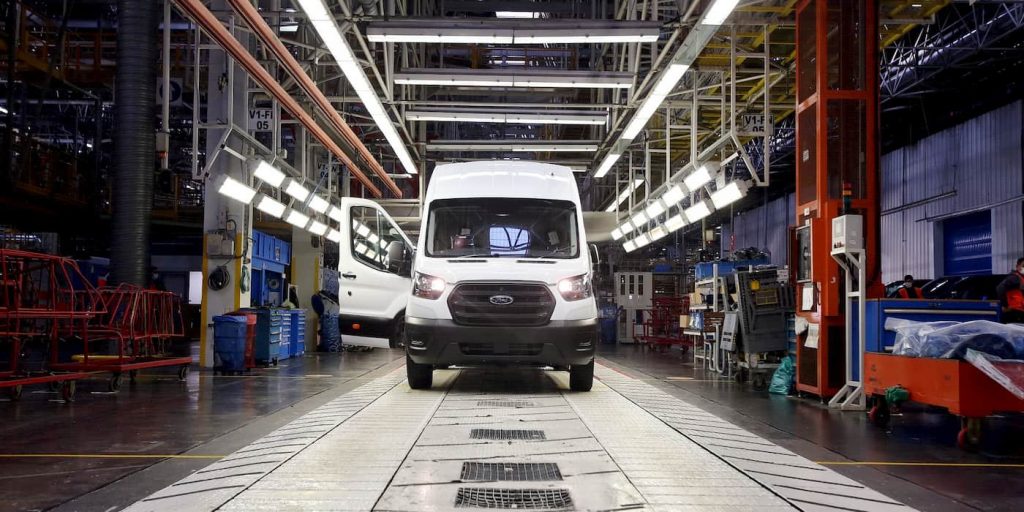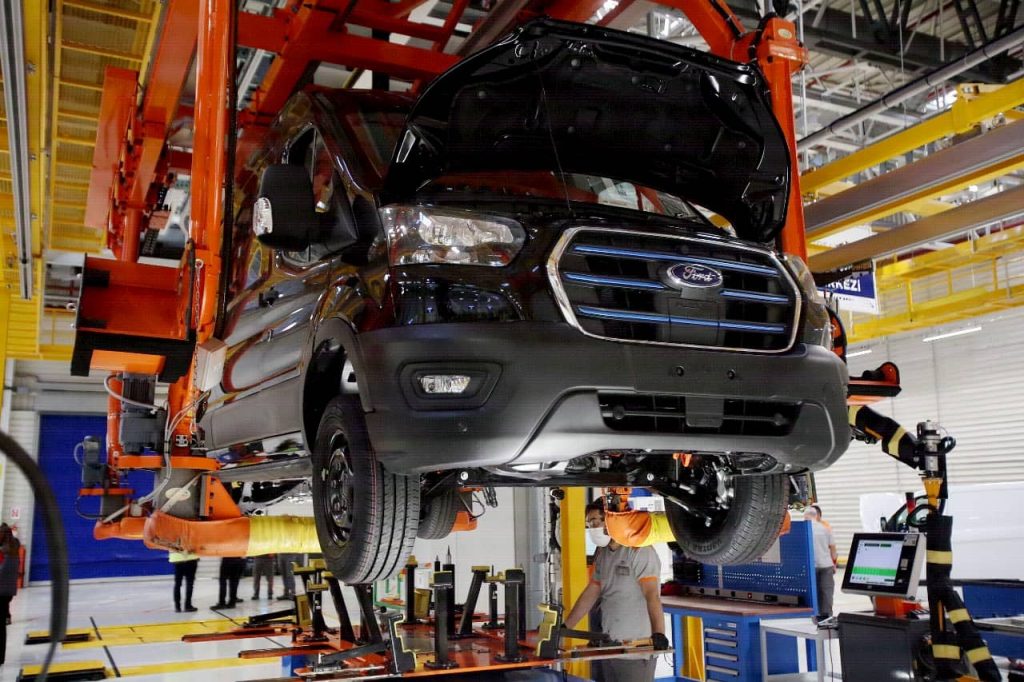
Plans to build one of Europe’s largest electric vehicle battery cell plants have fallen through. Ford’s partnership with LG Energy Solutions (LGES) and Koç Holding is scrapping plans to produce EV battery cells in the region, citing the “current pace of EV adoption.”
Ford, LGES drop plans for EV battery plant in Turkey
Ford, LGES, and Koç Holding signed a memorandum of understanding (MoU) in February to establish “one of Europe’s largest commercial EV battery cell” plants in Turkey.
Annual production was intended to reach at least 25 GWh, with the potential to be expanded up to 45 GWh to build battery cells. The JV said they were on track to break ground later this year, with production starting in 2026.
Lisa Drake, VP of Ford EV industrialization, said the battery plant would “lay a solid foundation to building a thriving electric vehicle future for Ford in Europe.”
Meanwhile, the JV was still subject to final agreement by all parties. According to Turkey’s Koç Holding on Friday (via Automotive News Europe), “the timing is not appropriate for a battery cell investment.”

The company blamed “the current pace of electric vehicle adoption” as the reason. Koç added, “Ford and Koc Holding will remain committed to support electric vehicle production at Ford Otosan’s Kocaeli plant.”
It will “evaluate potential battery cell investments in the future in line with the dynamics of the electric vehicle market.”

The American automaker and Koç have worked together for almost 60 years, including building Transit vans through the Ford Otosan joint venture. It will begin building E-Transit and electric vans for VW as part of the automaker’s collaboration.
LGES also supplies batteries from its Poland plant for the Ford Mustang Mach-E and E-Transit. The battery giant said the three partners mutually agreed to drop the plans due to the “current pace of consumer electrification adoption.”
Electrek’s Take
Is the pace of EV adoption slowing? There’s been a lot of discussion on the topic lately.
LGES already warned of slowing revenue in 2024 due to a gloomy economic outlook. Ford and rival GM delayed electric vehicle targets this past quarter over slowing demand.
The downbeat outlook is over fears that higher interest rates could cut into consumer buying power next year in Europe and China.
Meanwhile, pure EV makers, including Tesla, BYD, and Rivian, continue their hot streaks as EV adoption climbs globally.
Other automakers that were earlier to adopt EVs, including Volvo and Hyundai, expect the momentum to continue with new exciting electric models launching next year. So, is it the market? With newer, advanced electric models on the market, some brands are already getting squeezed out.
EV leaders, including Tesla and BYD, have drastically cut prices all year, forcing others to do the same. The only difference is Tesla and BYD can afford lower margins. Can others afford widening losses?
The adoption of EVs will continue climbing year-over-year. Automakers that put the early effort in are already reaping the rewards. Continuing to push back investments in favor of the present will be costly in the future.
Author: Peter Johnson
Source: Electrek



